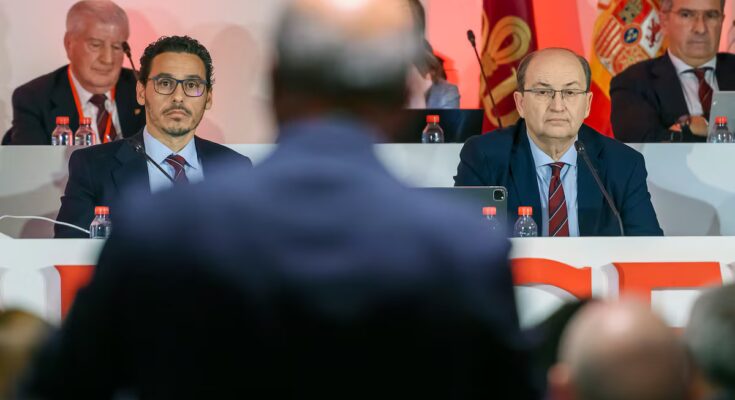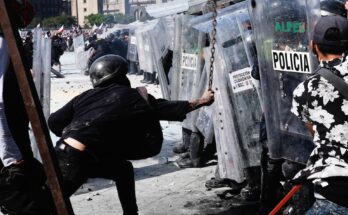Sevilla is close to changing owners. A model of business management and sporting success until just three years ago, it is now facing a delicate economic and institutional situation. With a recognized debt of close to 70 million euros (some sources speak of 300), the club will present losses of 50 million at the next shareholders’ meeting on 16 December. Poor sporting results did the rest. Sevilla is for sale and all its large shareholders are inclined to get rid of their share package: the Nido family manages 28% of the shares. José Castro, current vice president, and the so-called Utrera Group plus the Alés family, 23%. The Carrión family, 15%, while the so-called American Group controls another 15%. The balance of power established in 2000 between these families (the Americans entered much later) was broken by social pressures and internal wars for power, essentially sponsored by José María del Nido. Everyone wants to sell and the first steps are already being taken for an operation that could materialize during this season.
The first offer (four more arrived) arriving from Sevilla’s major shareholders was that of Antonio Lappi, a Sevillian and Sevillian entrepreneur, whose project includes a cast of figures for the reconstruction of the club in the sports field. Its big attraction would be the arrival of Monchi, the sporting director of the team’s great successes, fresh out of Aston Villa and currently busy reviving San Fernando. Together with him, this new project will feature important figures such as Rakitic and Kanouté, two Sevilla legends.
What was the offer presented? Lappi estimated the value of Sevilla as a club at around 300 million euros. To this we should subtract the 66 million in net debt that the organization has and which was recognized by the president José María del Nido Carrasco himself last September. So Lappi and his group launched an offer of 2,490 euros per share to Sevilla’s large packages. There are 103,467 shares to be sold among the four big shareholders. But the purchase has nuances. 60% of this amount would be paid at the time of subscription (approximately 1,600 euros per share) and the remaining 40% after a Due diligence will closely examine the financial situation of Sevilla, which has requested several loans in recent years in order to have liquidity in the face of the evident lack of financial resources after the first team stopped regularly attending the Champions League. Some sources estimate that Sevilla could have a gross debt of over 300 million euros.
Sevilla’s major shareholders said no to Lappi’s offer. The main reason is that they consider it insufficient. And, in any case, lower than those presented by other roads. One of these would guarantee, a priori, 3,100 euros for each Sevilla share. This is a buyer brought by the American fund Riverside and mediated by important elements of Spanish football itself. “This offer was welcomed favorably by all shareholders. It is not excluded that the club will announce in a relatively short period of time that negotiations for the sale of the club with this fund are underway”, sources very close to the operation told this medium.
But Lappi and his team believe that all is not lost. The one called as Third Way in the capital of Andalusia understands that it is unrealistic for a fund to buy Sevilla at more than 3,000 euros per share without doing an in-depth analysis of the economic situation of the entity. They assume that after the diagnosis of the situation there will be a reduction in this succulent offer a priori. So it should be close to what Lappi offers. At that point logic should lead Sevilla’s major shareholders to sell to some Sevillian and Sevillian entrepreneurs. The entry of foreign capital can represent a risk. There are the examples of Valencia or Málaga in Spanish football.
The major shareholders assure that the sale will take place with great sensitivity and with an offer that guarantees the future of the entity. “You can’t fight against the timing of football,” he slips. Sevilla doesn’t just need to purchase the majority of shares. Even an injection of money to reshape the institution and create a staff with guarantees. These big shareholders don’t want the club to become exactly a Málaga or a Valencia. And Sevilla has a juicy heritage: a Sánchez Pizjuán stadium in the heart of Andalusia’s capital and a huge sports city also very close to the capital.


